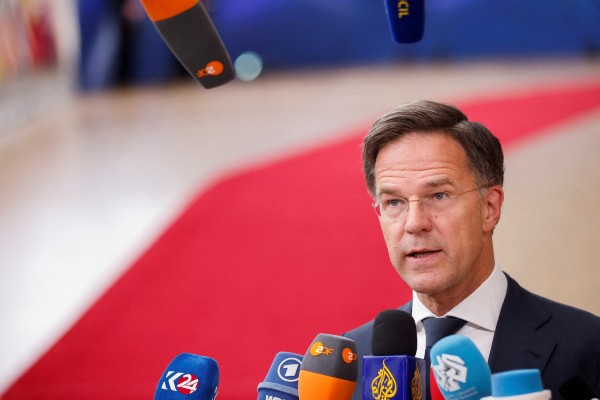BRUSSELS: NATO will formally appoint Dutch Prime Minister Mark Rutte as its next boss on Wednesday.
The move comes as the war in Ukraine rages on the Trans-Atlantic alliance’s doorstep and uncertainty looms over the continued support of the United States.
Ambassadors from NATO’s 32 countries are expected to pick Rutte to succeed Jens Stoltenberg of Norway as its secretary-general at a meeting of the North Atlantic Council, the alliance’s main decision-making body, according to diplomats.
Rutte’s appointment became a formality after his only rival for the post, Romanian President Klaus Iohannis, announced his decision to quit the race last week.
Stoltenberg’s term ends on October. 1. He took office in 2014, just a few months after Russia annexed Crimea from Ukraine.
After declaring his interest in the post last year, Rutte gained early support from key members of the alliance including the United States, Britain, France and Germany.
Others were more reticent, particularly Eastern European countries which argued the post should go to someone from their region for the first time.
But they ultimately rowed in behind Rutte, a fierce critic of Russian President Vladimir Putin and a staunch ally of Ukraine.
NATOtakes decisions by consensus so Rutte, who is bowing out of Dutch politics after nearly 14 years as prime minister, could only be confirmed once all 32 alliance members gave him their backing – a process that was completed last week.
Rutte will face the challenge of sustaining allies’ support for Ukraine’s fight against Russia’s invasion while guarding against NATO’s being drawn directly into a war with Moscow.
He will also have to contend with the possibility that NATO-sceptic Donald Trump may return to the White House after November’s U.S. presidential election.
Trump’s possible return has unnerved NATO leaders as the Republican former president called into question U.S. willingness to support other members of the alliance if they were attacked.
(REUTERS)
In a career spanning three decades and counting, Ramananda (Ram to his friends) has been the foreign editor of The Telegraph, Outlook Magazine and the New Indian Express. He helped set up rediff.com’s editorial operations in San Jose and New York, helmed sify.com, and was the founder editor of India.com.
His work has featured in national and international publications like the Al Jazeera Centre for Studies, Global Times and Ashahi Shimbun. But his one constant over all these years, he says, has been the attempt to understand rising India’s place in the world.
He can rustle up a mean salad, his oil-less pepper chicken is to die for, and all it takes is some beer and rhythm and blues to rock his soul.
Talk to him about foreign and strategic affairs, media, South Asia, China, and of course India.





